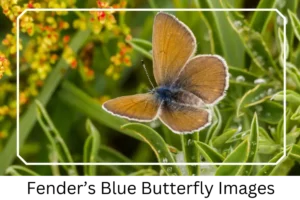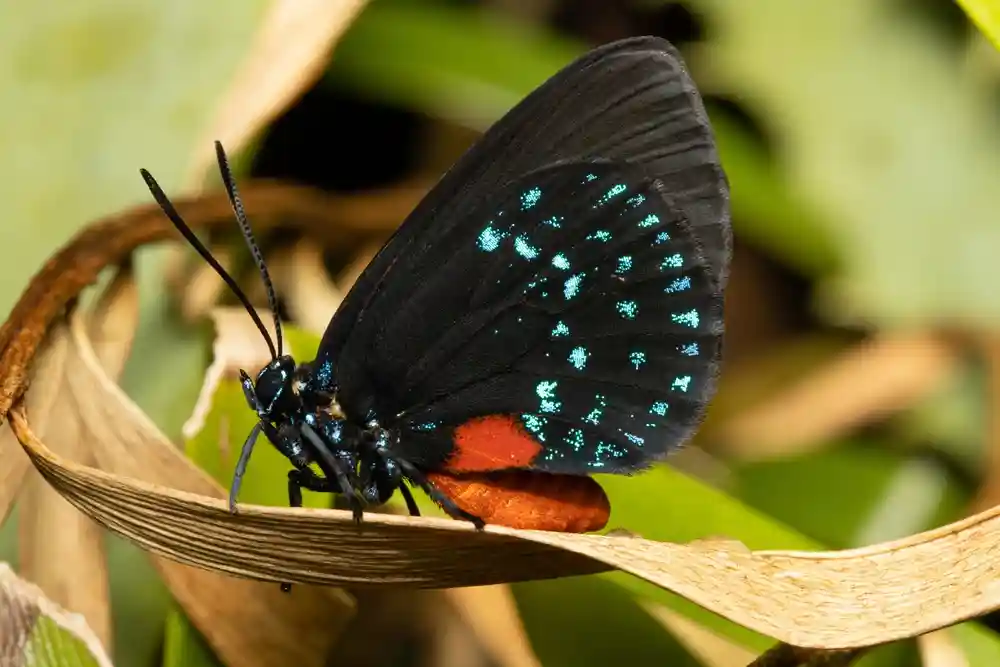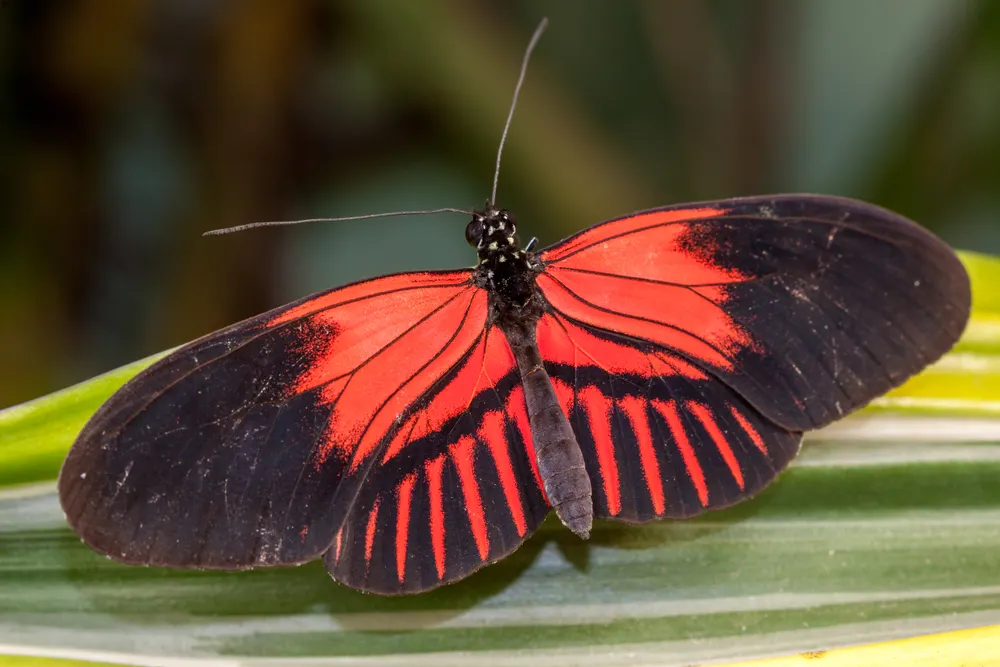Fender’s Blue (Aricia icarioides fenderi)
The Fender’s Blue butterfly, an enchanting yet endangered subspecies of the Boisduval’s Blue, paints the landscape of parts of the USA with its delicate presence. Notably tiny and once presumed extinct after disappearing in the 1930s, it miraculously resurfaced in 1989, captivating the hearts of conservationists and nature enthusiasts alike. This butterfly, primarily visible during the summer months of April and May, serves as a symbol of resilience and the importance of environmental conservation efforts.
Scientific Classification
- Family: Lycaenidae
- Genus: Aricia
- Scientific Name: Aricia icarioides fenderi
Overview
The Fender’s Blue butterfly’s journey from presumed extinction to rediscovery highlights its fragile existence within the Willamette Valley of northwestern Oregon, USA. Its lifecycle, from a minuscule larva to a vividly colored adult, showcases nature’s intricacies and the butterfly’s specific habitat and dietary requirements. This narrative not only draws attention to its unique characteristics but also underscores the critical conservation status, urging immediate action to protect and preserve its dwindling habitats.
Description and Identification
Caterpillar
The journey begins with the caterpillar stage, where the Fender’s Blue larva exhibits a tiny, segmented body adorned in a vibrant green. As it progresses through instars, a distinctive dark mark may emerge across its body, signaling its development towards the next stage.
Pupa
Transitioning to the pupa stage, the chrysalis adopts a light green or greenish-brown hue, cleverly camouflaging at the base of the host plant. Here, it overwinters, emerging as an adult butterfly with the spring’s warmth.
Adult Butterfly
Sexual Dimorphism: A striking feature of the Fender’s Blue is the clear difference between the sexes. Males boast iridescent sky-blue wings, while females display a more subdued rusty brown.
Color and Appearance: The dorsal side of the wings presents a mesmerizing color palette; males shimmer in blue, and females in brown, both bordered by a distinctive white fringe and black outline. The ventral side reveals a pearly gray to dull white background, peppered with black and brown spots encircled in white.
Average Wingspan: Spanning about 1 inch, their wings are a testament to their delicate nature.
Flight Pattern: Characterized by rapid and erratic wing movements, their flight is a ballet in motion, unpredictable and enchanting.
Eggs
The lifecycle recommences with the laying of rounded eggs, meticulously placed on the underside of a Kincaid’s lupine leaflet, ensuring the survival of the next generation.
Quick Facts | |
| Distribution | Exclusive to the Willamette Valley of northwestern Oregon, USA. |
| Habitat | Prefers the native upland prairies, a habitat increasingly under threat. |
| Lifespan of Adults | A brief existence, averaging 10 days. |
| Host Plants | Demonstrates a particular affinity for lupines. |
| Adult Diet | Sustains on the nectar of flowers, showcasing the interconnectedness of the ecosystem. |
How to Identify Fender’s Blue Butterfly?
Identifying Fender’s Blue requires a keen eye and an understanding of its unique markings and behaviors. Observers should look for a small butterfly with an approximate wingspan of 1 inch, showcasing a distinctive flight pattern that is both rapid and erratic. Males can be identified by their iridescent sky-blue dorsal wings, whereas females display a rusty brown hue. Both sexes have a white fringe bordered by black on the upper side. When the wings are closed, the ventral side reveals a pearly gray to dull white with specific black and brown spots outlined in white. Spotting these butterflies often means you are in or near their native upland prairie habitats, especially around Kincaid’s lupine, their host plant.
Did You Know?
- The Fender’s Blue was officially declared ‘endangered’ on January 25, 2000, receiving protection under the Endangered Species Act (ESA), highlighting the critical need for conservation efforts.
- This butterfly’s selective diet and habitat preferences underscore the importance of preserving native prairies and lupine species, which are vital for their survival.
- The rediscovery of the Fender’s Blue in 1989 serves as a hopeful reminder of the resilience of nature and the potential for species to recover with dedicated conservation efforts.
Conclusion
The Fender’s Blue butterfly is more than just a beautiful creature; it is a symbol of the fragile beauty of our natural world and the resilience inherent in nature. Its story of near extinction and remarkable recovery is a compelling call to action for the conservation of its habitat and the protection of biodiversity at large. By understanding and appreciating the delicate balance required for its survival, we can contribute to the ongoing efforts to ensure that future generations will also be able to witness the mesmerizing flight of the Fender’s Blue.
Fender’s Blue Pictures

Scientific Classification

- Family: Lycaenidae
- Genus: Aricia
- Scientific Name: Aricia icarioides fenderi







